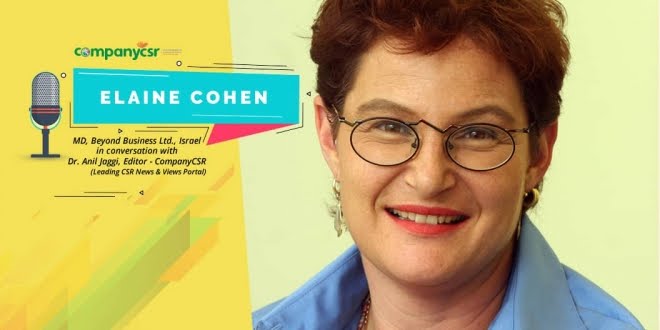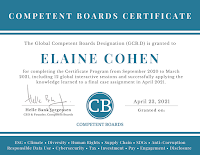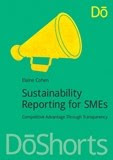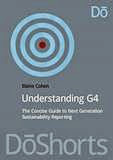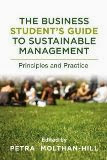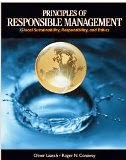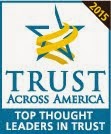Finally, I have gotten around to doing what I love doing. Reviewing one of the great new CSR reports to be issued in the past few months. The SAP 2009 Sustainability Report.
It was hard to miss the commotion around the launch of the SAP report, proclaimed by many as the most innovative and forward-thinking, hi-tech, interactive and engaging report in the history of CR reporting. I have bounced in and out of the online report a few times, findng the online format a touch cumbersome to navigate, despite its objective of delivering a compelling interactive experience. Now it's time to take a deeper look, and whilst I am at it, consider just how much interactivity this interactivity pioneer has interactivated in its first few months of issue. Let's do it this way: 5 things I like about the SAP report. and 8 things I dont ..err... 8 things I like less. Good news first, as always.
I like:
The Tour of the SAP 2009 Sustainability Report. If you can't be bothered to read the whole thing, then 7.43 minutes of highlights and insights for a Magical Mystery Tour of this report is time well spent. Nicely done. An Executive Summary on video.
The open feedback facility on every page. "Issue Experts" and other SAP people conduct open dialogue in response to feedback and queries so that all of us folks who thought it and didn't feedback it can get the benefit anyway. Very nice feature which I hope will be adopted by many other Companies. Comments are not moderated which demonstrates great transparency in this Brave New CyberSpace World. It kind of turns the report into one long blog. Hmm. Now there's an Idea ... a Sustainability Report in the form of a BLOG. What a great thought. Remember: you saw it HERE first. Also, when you post a comment in the SAP report, a pop-up enables you to share your comment to Twitter, FB and LinkedIn. Nice feature.
The materiality matrix. I LOVE materiality matrices. This one is great. Not only does it clearly MAP the SAP issues, it gives detailed descriptions including commentaries by external experts on each issue, describes the changes in materiality focus year on year AND it enables you to play around with the bubblewrap-style matrix and reposition everythng that's important to SAP so that it defines what's important to YOU, and feed it back to SAP. Really neat. I could play with this for hours. And when you save your new SAP Materiality Matrix, a little pop-up pops-up and says " Thank you for your valuable feedback!" Such a polite report :)
The SiteMap: This is about the best way to navigate this report, enabling an overview of the different sections. It is, in effect, the Report content list.
The Advisory Panel Statement: I liked this statement, finding it to be balanced and astute in its commentary on SAP's advances in sustainability processes and also the limitations of this report. This adds a degree of credibility to Sap's efforts and reporting.
I less like:
No download: I find it soooo tiresome and time-consuming reading reports on line. Online reading is ok for blog posts and other articles with short bytes. The SAP report is long enough to make me tire of the online version after half a dozen clicks. Sorry SAP. A PDF download, as an additional option, is a format which I find much easier and much more efficient for reading the entire report. The online is great for dipping in and out but makes for a disjointed reading experience as moving around is interrupted with click and wait to load the page. Drives me insane. I like to work fast and totally online reports often slow me down and this SAP report is no exception.
Feedback feature: When you go to enter comments, the comment box expands and overrides the page you want to comment on. Since I turned 21, my memory just ain't what it used to be, and if I cannot see what I am commenting on, I forget what I wanted to say. Yep, fact of life. I had to comment with the report open in two web pages, and toggle between them. Rather tiresome.
The Sustainability Map: This is a product marketing brochure for SAP solutions. It looks nice and organized well, but it's promotional rather that substantial. It's not reporting the IMPACT of SAP's sustainability solutions, it's describing SAP's offerings. I believe SAP must think in terms of measuring the way the company is creating a difference in the market place and reporting on that, rather than focusing on the way it maintains a presence.
It's Boring: This report may be interactive, but it is boring. The style and tone is dry and consists of mechanical, descriptive, often technical commentary. Where is the true spirit in this report? It seems to be taken up in the self-congratulatory smugness of the online presentation rather than the way sustainability comes alive at SAP. Where are the SAP employees in this report? What about a few faces and names of key players (beyond vids of the CEO's and Sustainability Director)? A few case studies. Anecdotes. Chunky Monkey. Something to inspire.
It's shallow in key areas: The report content doesn't dive deep enough into core issues that are of critical importance to SAP's culture and development as a sustainable business. The section on Women in Management does not adequately explain why SAP's results are consistently poor despite a string of initiatives to make women superwomen. The section on Employee Engagement which dropped 84% to 69% in 3 years - an alarming result - a third of the workforce are not engaged - doesn't inspire confidence that SAP knows how to address this as an organization. Customer Satisfaction declined by two percentage points from 93% to 91% in 2009. Is this significant for SAP? The commentary does not really describe specific efforts that will ensure higher levels of satisfaction in the future aside from a change to customer service options and no increase in service fees.
It's tactical not strategic: This Sustainability Report gets high marks for transparency and interactivity. However, it is focused on SAP inputs and not outcomes. Despite spending rather a lot of time in the report, I still fail to get a clear substantiation of the contribution SAP is making to advance a sustainable society. The few case studies from Lexmark, Rohm and Hahs and John Deere do not really provide clear measurable benefit, they are more like technical specifications for software solutions. This report lacks a concept and a theme which tells the story of SAP's sustainability. The Advisory Panel says that SAP has unambiguously embraced the role of enabler. Well, frankly, if they hadn't made this point, I am not sure anyone would have got it. SAP needs to stand back from the technological magic and think about what they really want to use this report for and how to project their real contribution, beyond making money.
No Sustainability Action Plan: Contrast this report with the "we said, we have, we will " of master-reporters Vodafone and you realise that the SAP report really does not achieve clarity about its sustainability journey. I wasn't able to get a sense of overall plan, performance against that plan, or quantifiable future targets. Maybe I just got tired of clicking and waiting.
So, on balance, the "less likes" rule the day for me. I commend the team at SAP for the most significant feature of this report - open live unmoderated transparent feedback - and for a report which meets the highest transparency level of the GRI framework. Clearly, much effort has gone into this report and it certainly is a worthy player which can proudly take its place amongst the better reports of 2010. Personally, however, as you can see, there is much about this report that I found less engaging and less mature in terms of what I might expect from a highly developed sustainably conscious company such as SAP. Still, any Company who is open to feedback will surely continue to evolve and improve, so I am confident that the SAP 2010 report will be an absolute blockbuster :)
elaine cohen, CSR consultant, Sustainabilty Reporter, HR Professional, Ice Cream Addict. Contact me via www.twitter.com/elainecohen on Twitter or via my business website www.b-yond.biz/en Beyond Business Ltd, an inspired social and environmental consulting and reporting firm.











